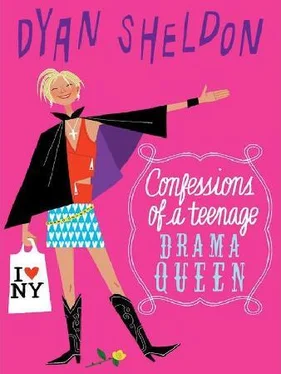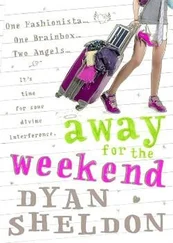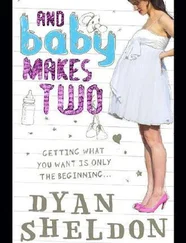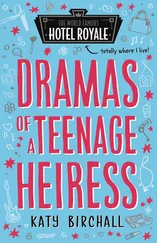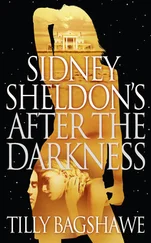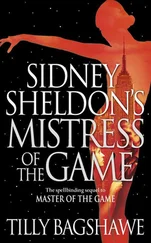Dyan Sheldon
Confessions of a Teenage Drama Queen
For Kathy, Patty and Mary
My Young Life And Hard Times
It is a sad and shocking fact of my young life that my parents named me Mary Elizabeth Cep by mistake. I’ve known since I was five that my true name is Lola. I don’t remember where I first heard it, but I loved it immediately. Lola… Lola is romantic and mysterious. It’s evocative and resonant. It’s unusual – as I am. Mary Elizabeth sounds like the maid in an English drama. You know, “Mary Elizabeth,” smarms the Lady of the Manor, “please show Mr Smudgins into the parlour.” Having a generous nature I can forgive my parents this error, major though it is. I can see that it wasn’t really their fault. They both watch PBS (Public Broadcasting Service) a lot. But that doesn’t mean that I have to accept their mistake as final.
When I become an actor I’m going to legally change my name to Lola Elspeth Cep. Or maybe Lola Elspeth Sep. I haven’t made up my mind about the spelling yet.
My family, naturally, has always stubbornly refused to call me Lola.
“Mary’s the name on your birth certificate,” says my mother, “and that’s the name we’re using.”
My close relatives are astoundingly unimaginative, especially considering that we share a common gene pool. But then another of the more shocking truths of my young life is that no one in my family truly understands me. They seem to think I’m going through a stage, although even my mother admits that this stage has been lasting a pretty long time. Like since I was born. Whenever I announce what I’m going to do when I become an actor, my mother always laughs and says, “What do you mean when ?”
She calls me the Drama Queen, though not to my face. Sometimes I hear her on the phone to my dad or her parents. “Oh, the Drama Queen?” she’ll say. “This week she seems to be in an Edward Albee play.” The twins must hear her, too, because sometimes they do call me Drama Queen to my face. Not that I’m blaming my siblings for their limitations. Pam and Paula are only eight and, like our mother, they’re hopelessly ordinary. Since we have different fathers I can only assume that my uniqueness is due to some latent gene in the Ceps that skipped about twenty generations till it finally emerged in me. In my family I’m like a flamingo in a flock of pigeons. Expecting them to understand me would be like expecting a cat to understand Hamlet . I mean, really… Do tortilla chips fly? Is the moon made of cheese?
Anyway, we used to live in New York City, in this great old building on the Upper West Side, but last year my mother moved us to a ranch house in the soporific suburb of Dellwood (or as I affectionately call it, Deadwood), New Jersey. New Jersey! At first I thought she must be joking. After I was forced to accept that my mother was grotesquely serious, I consoled myself with the fact that at least she wasn’t moving us to Nebraska. You can’t even visit New York from Nebraska.
Like most truly creative people, I loathe the suburbs. Living in the suburbs is like being dead, only with cable TV and pizza delivery. In New York, you live with your finger on the cultural pulse of the universe. Plays, operas, dance, books, music, films, artists – everything’s there and happening. People in New York get excited when there’s a new exhibition at the Met or if Scorsese’s filming in Brooklyn. In the suburbs people get excited when they have their kitchens redone.
And besides the constant intellectual and spiritual stimulation of the greatest city in the world, there are always a zillion things going on in New York, and tons of famous people around. You may not believe this, but I once bumped into Johnny Depp in the East Village. He was coming out of a restaurant, and I didn’t see him because I had these really sick sunglasses on and they more or less made me legally blind. Usually, though, if I wanted to meet an actor I’d find out where they were shooting a movie. I met Robert De Niro, Robin Williams, Al Pacino and Michelle Pfeiffer like that. I got all their autographs.
My mother says that living in the City is like living on a movie set, not like living in a real town. That’s one of the reasons we moved, so we could live in a real town – for the sake of the twins. The only things they ever shoot in Dellwood are home videos and the occasional rabbit. The only reason Johnny Depp would be coming out of a restaurant in Dellwood is if his car broke down while he was on his way somewhere else and he had a cup of coffee while he was waiting for it to be fixed. As far as living in Dellwood is concerned, I’m like a bird in a cage with a good school district.
I understood my mother’s concern about Pam and Paula, of course – they were only seven at the time we moved, which is a very impressionable age – but I couldn’t see why my mother wouldn’t let me stay behind in the City. I could have lived with my dad, he has a spare room. And he lives in the East Village, which is the coolest place in Manhattan if not in the entire universe. I know I could have talked him into it – he’s a lot more malleable than his former wife – but my mother wouldn’t hear of it. She has custody, and she’s keeping it. Though that isn’t exactly how she put it. “Your father and I have our differences, but even he doesn’t deserve that ,” was what she said.
But I have a positive nature. I believe in making the best of even the worst situation. I mean, you have to, don’t you? There’s no point being negative about things you can’t change, you only make them worse. And anyway, as I always say, every cloud has a solid gold lining.
The solid gold lining in the black thundercloud of moving to Deadwood was that it gave me a chance to re-create myself a little, as all great actors do. Back in the City at least half the kids I went to school with were kids I’d gone to school with most of my life. They called me Mary. They looked at me and saw the little girl who threw up at Edna Rimbaud’s seventh birthday party. They knew all the dull and embarrassing details of my existence. It was like playing Peter Pan for eleven years. To the audience you’re this little boy in a green leotard, and that’s it. You’ll still be Peter Pan when you’re fifty, while lesser actors get to play King Lear.
Dellwood, however, was an empty stage as far as I was concerned. An empty stage to which I was allowed to bring my own script. I didn’t have to go gently into the good suburban night. I could choose whatever role I wanted – be whatever I wanted to be – and no one would know any better. No one who wasn’t related to me would ever call me Mary again.
Looked at in that way, the move to Deadwood was almost exciting. It was definitely a challenge. The life without challenge is the life without depth.
There was another way to look at it, too. Besides raging against the dying of the lights of the City from my life, I now had the opportunity to bring one of those lights with me into the wilderness. Myself. Lola Elspeth Cep (or Sep). I would be a beacon for all the confused youth of Dellwood who needed reassurance that there was more to living than beer parties and shopping. I would be a source of nourishment to those starving, embryonic souls who were looking for true passion and meaning in their humdrum lives. At last I could start to be the great actor Lola Cep.
A legend was about to be born.
I think it’s safe to say that no one at Deadwood High – student body and staff alike – had ever seen anyone quite like me. And this, of course, was to my advantage. They didn’t know what to expect. My first few weeks were devoted to showing them what to expect: the unexpected; the unusual; the individual; the unique. One week I’d dress only in black; the next my colours would be vibrant and bright. One week I’d be quiet and remote; the next I’d be gregarious and funny. It was a demanding part, but it took my mind off other things.
Читать дальше
